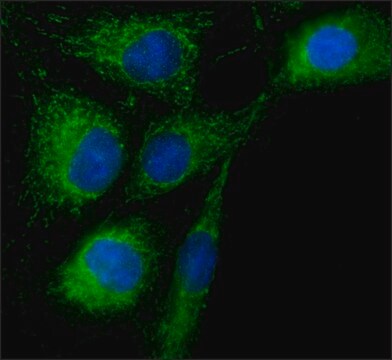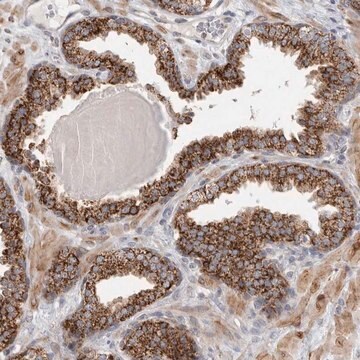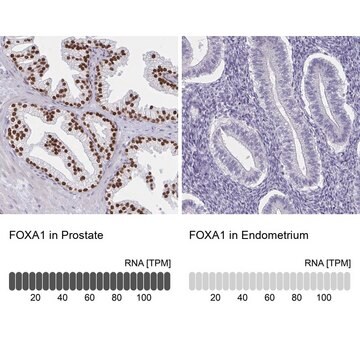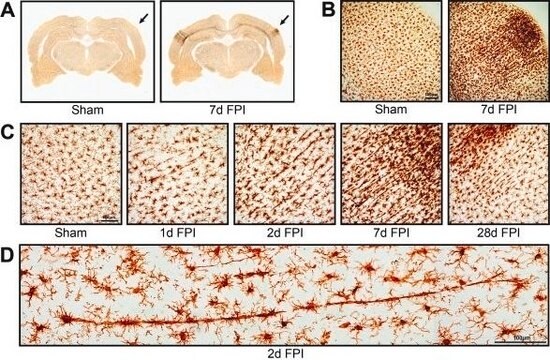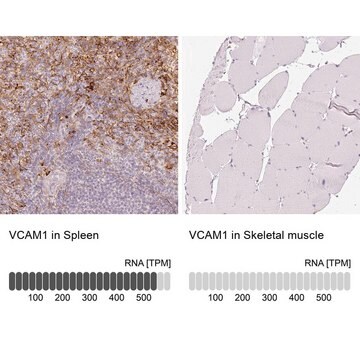SAB4200174
Anti-Rab18 (C-terminal) antibody produced in rabbit
~1.0 mg/mL, affinity isolated antibody
Synonym(s):
Anti-RAB18LI1, Anti-RP11-148B2.1, Anti-ras-related protein Rab-18
About This Item
Recommended Products
biological source
rabbit
conjugate
unconjugated
antibody form
affinity isolated antibody
antibody product type
primary antibodies
clone
polyclonal
form
buffered aqueous solution
mol wt
~23 kDa (additional bands of higher MW may appear in some extract preparations)
species reactivity
rat, mouse, human
packaging
antibody small pack of 25 μL
concentration
~1.0 mg/mL
technique(s)
immunoprecipitation (IP): 2.5-5.0 μg using lysates of human PC3 cells
indirect immunofluorescence: 2.5-5.0 μg/mL using rat NRK cells
western blot: 2.5-5.0 μg/mL using whole extracts of mouse MM3MG cells
UniProt accession no.
shipped in
dry ice
storage temp.
−20°C
target post-translational modification
unmodified
Gene Information
human ... RAB18(22931)
mouse ... Rab18(19330)
rat ... Rab18(307039)
General description
Specificity
Application
- immunoblotting
- immunoprecipitation
- immunofluorescence
Biochem/physiol Actions
Physical form
Storage and Stability
Disclaimer
Not finding the right product?
Try our Product Selector Tool.
Storage Class Code
10 - Combustible liquids
Flash Point(F)
Not applicable
Flash Point(C)
Not applicable
Certificates of Analysis (COA)
Search for Certificates of Analysis (COA) by entering the products Lot/Batch Number. Lot and Batch Numbers can be found on a product’s label following the words ‘Lot’ or ‘Batch’.
Already Own This Product?
Find documentation for the products that you have recently purchased in the Document Library.
Our team of scientists has experience in all areas of research including Life Science, Material Science, Chemical Synthesis, Chromatography, Analytical and many others.
Contact Technical Service